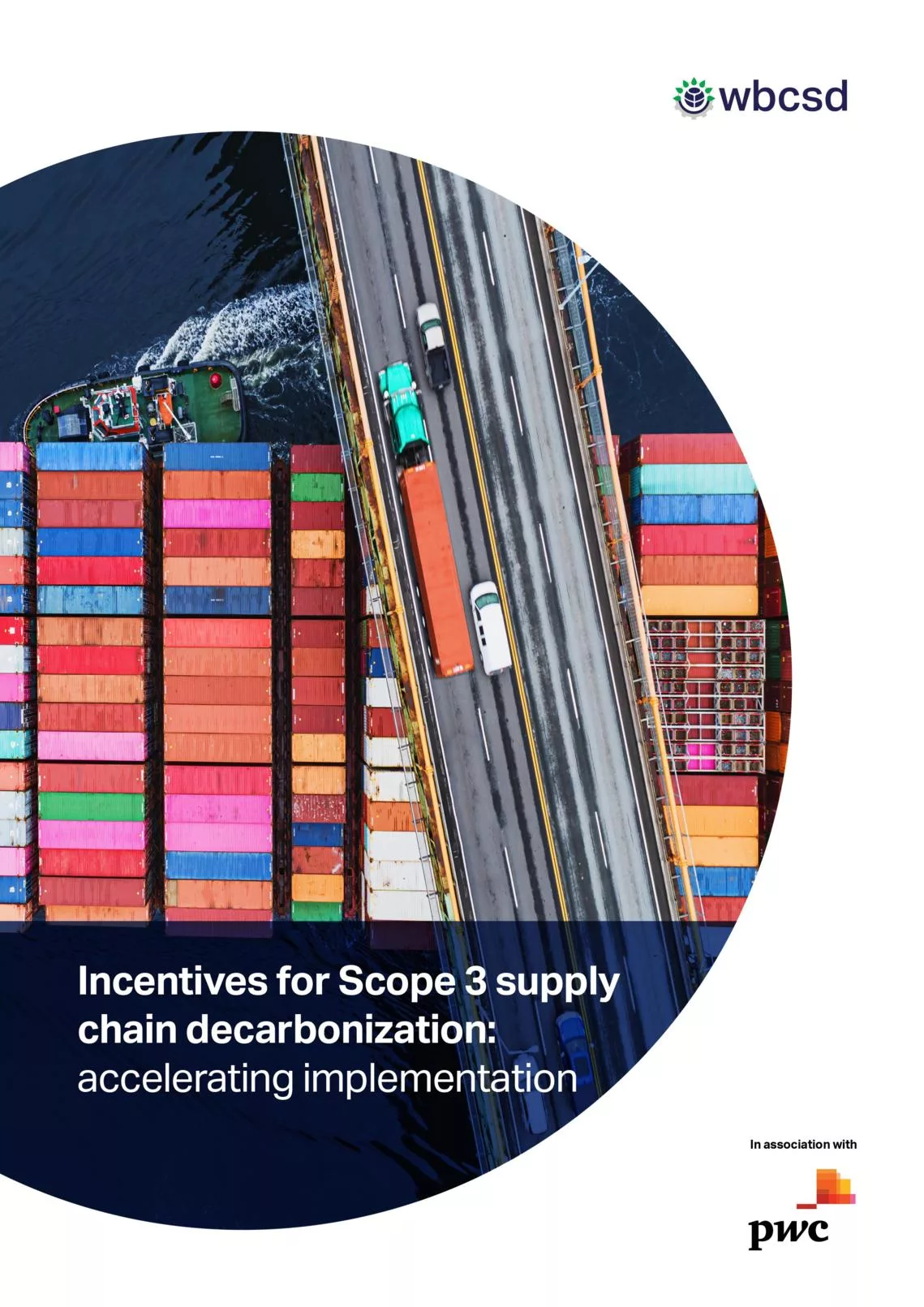Incentives for Scope 3 supply chain decarbonization
Accelerating implementation
Published: November 3, 2022

To reach net zero, businesses across the globe must address Scope 3 supply chain emissions. Decarbonization within the supply chain plays a critical role in realizing net-zero ambitions, and businesses are in a unique position to influence supplier behaviors, operations and investments through incentives.
Given the importance of value chain transformation, WBCSD launched a working group on Incentivizing Supply Chain Decarbonization to deepen the practical guidance shared and drive action on Scope 3 emissions. The working group has grown rapidly, reflecting the urgency and support needed to decarbonize supply chains. It now consists of over fifty member companies across fourteen sectors, including heavy industry.
In 2021, WBCSD in collaboration with PwC, released the report: “Reaching net zero: incentives for supply chain decarbonization” which summarized a framework of supplier decarbonization levers that companies can use to take action on decarbonizing their supply chains to reduce Scope 3 upstream emissions.
Throughout 2022, WBCSD in collaboration with PwC has facilitated working group sessions with members, looking at specific decarbonization levers that were voted by companies as the most valuable to focus on in order to drive impact.
This report pulls together insights from the past year, summarizing outcomes from the group. It covers how to assess the relative ease and impact of implementing each lever, when and how to implement them, as well as who is responsible. In particular, it looks at how existing procurement processes can be leveraged for decarbonization. This report aims to help readers identify the “quick wins” whilst also encouraging organizations to consider which levers will have the greatest impact in supporting longer-term decarbonization that is in line with net zero ambitions.
Take a look at the report to understand how to create an implementation roadmap that sets the foundations for practical plans to reach net zero.
Previous publications as part of this series include:
- Incentivizing supply chain decarbonization using procurement criteria
- Incentivizing supply chain decarbonization by engaging with suppliers beyond tier 1
- Incentivizing supply chain decarbonization by mandating carbon reporting
- Incentivizing supply chain decarbonization through longer-term investments
- Incentivizing supply chain decarbonization through beneficial financial terms
- Incentivizing supply chain decarbonization through public recognition and co-branding
Contacts:
- Hannah Loake, Climate Action Senior Manager, WBCSD
- Dan Dowling, Sustainability Partner, PwC
- Patrick Marter, Procurement Partner, PwC
- Barry Middleton, Operations Transformation Partner, Pw